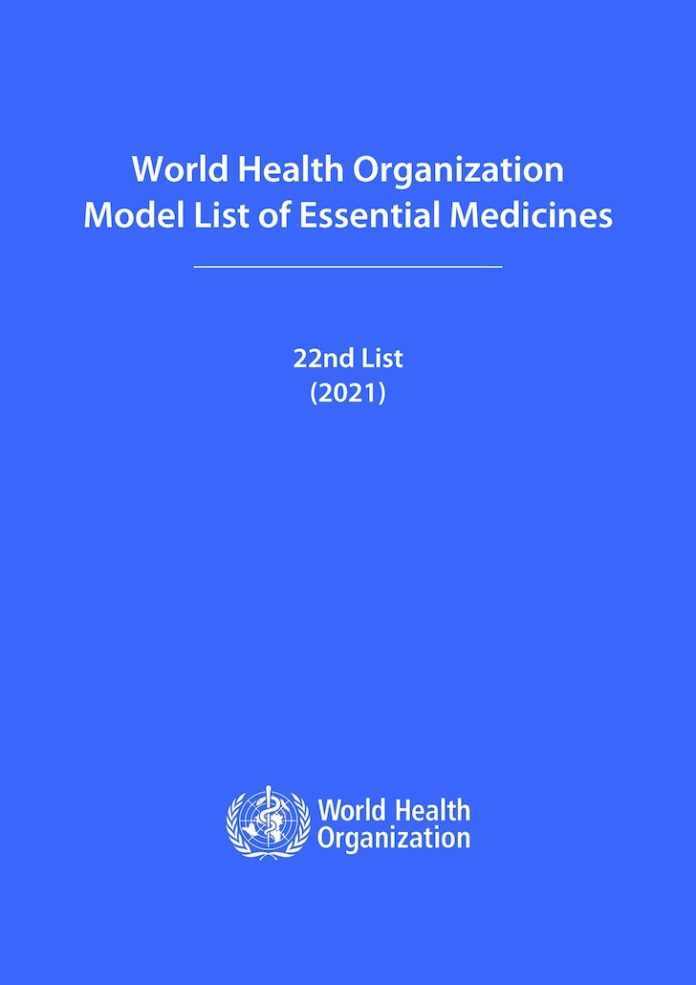On 1 October, the World Health Organization published its latest Model List of Essential Medicines (EML) and Essential Medicines for Children (EMLc). Updated roughly every two years, these lists guide countries around the world in selecting the highest priority medicines that should be available and affordable for their populations and thus represent critical expert guidance for health systems globally.
Overall, 20 new medicines were added to the EML and 17 to the EMLc this year. Diabetes was a particular focus, in the wake of insulin shortages and backbreaking prices when and where it is available. Several new treatments for cancers were added to the lists. Cancer is a leading cause of death globally with mortality rates growing alarmingly in Low- and Middle-Income Countries. However, some cancer medicines were kept off the list due to a combination of high prices and uncertain clinical benefit.
In general, the unsustainable prices of important medicines – both promising new ones as well as older treatments – was a key concern of the Expert Committee on the Selection and Use of Essential Medicines, which updates the Model Lists. The “trend of continually increasing prices of new medicines over time, particularly in the areas of cancer, autoimmune diseases, infectious diseases and rare diseases” has delayed or prevented the addition of potentially helpful medicines to the Model Lists as they cost “multiples of median annual household incomes making them unaffordable even in high-income countries,” the Committee noted.
As a result, the EML has included a strong recommendation that the WHO work with the Medicines Patent Pool (MPP) to facilitate generic production of medicines already included on the Model Lists, and also for those with a high possibility of future inclusion. The MPP is a UN-backed organisation that works to lower the prices of medicines through the negotiation of patent licences needed to allow the production of lower-cost generics. Its mandate already included all essential medicines, but the Committee’s recommendation that the MPP’s model be used on medicines for potential future inclusion is new.
Specifically, the Committee has asked the WHO to explore licences with the MPP for a high-priced diabetes medicine and two cancer treatments newly included on the lists as well as on five additional cancer treatments that might be included in future lists. The MPP welcomed the move, with its Executive Director Charles Gore noting it “recognises the importance of working on access as early as possible so that the essential medicines of tomorrow are rapidly available and affordable to all” in a press release.
Additionally, the Committee discussed the growing challenges with high priced medicines and recommended establishing a standing EML Working Group to support the Expert Committee to provide advice to WHO on policies and rules to make high priced essential medicines more affordable and accessible. Tasks of the Working Group should include:
- exploration of thresholds at which specific essential medicines become affordable in relation to countries and patients’ ability to pay;
- identification of prices that represent “fair value” for the benefits expected from essential medicines;
- identification of interventions by policy makers and other actors that could facilitate relevant and rapid decreases in prices to reach universal access to these treatments;
- development of a strategy to monitor price and availability trends of essential but unaffordable medicines, to be proposed as part of the next WHO General Programme of Work.
The executive summary of the discussions of the Expert Committee can be found here. The full lists can be downloaded here.
The WHO has now had three Fair Pricing Forums to discuss how to achieve fair prices, most recently in April 2021. While these forums offer interesting dialogues they so far have failed to have an effect on drug prices.
Concerns about high prices of essential medicines are not new; for more information see our earlier paper on challenges and options for ensuring essential medicines are also affordable medicines.
Kaitlin Mara, MSc, has been writing about international intellectual property and innovation policy for a over 15 years.
